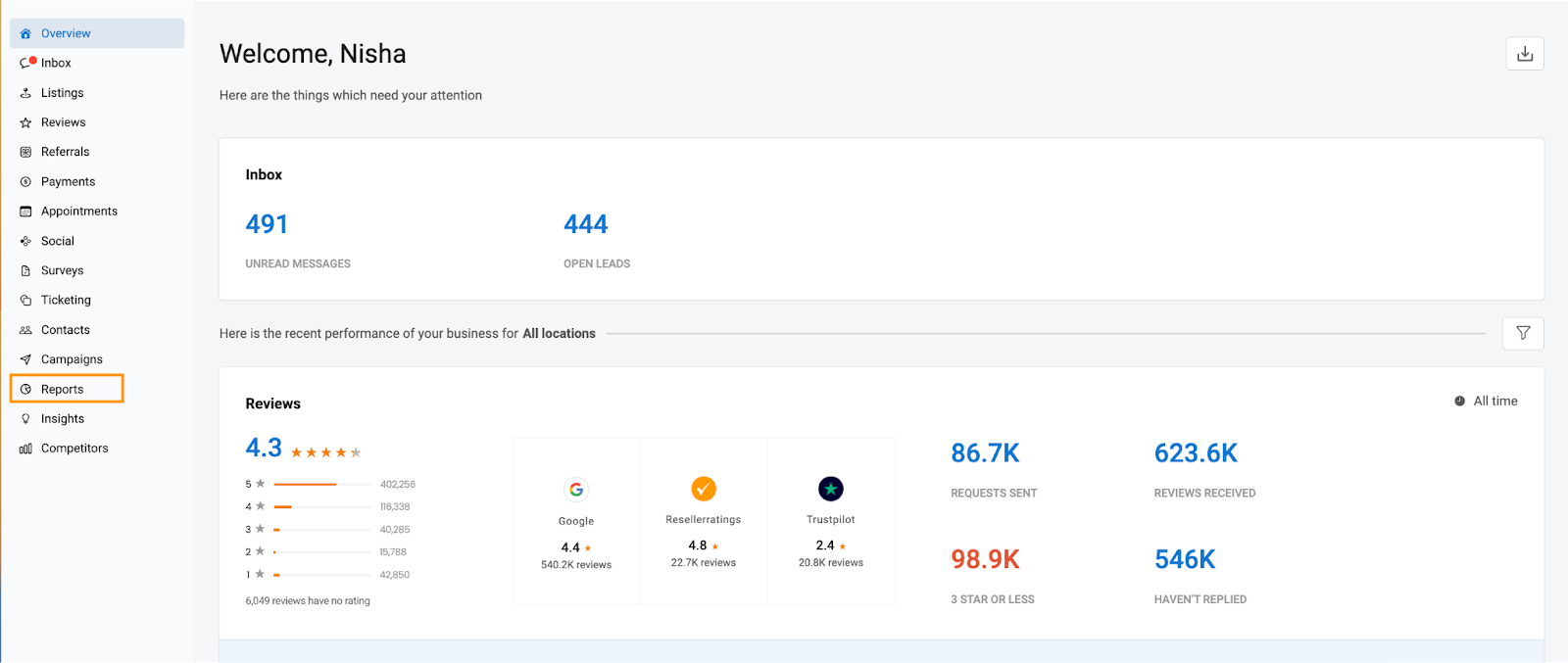Alternatives to Bazaarvoice Ratings & Reviews
1. Birdeye with BirdAI
+Pros
- Dual AI architecture providing hyperlocal personalization.
- Comprehensive platform coverage across 200+ review sites with multilingual capabilities.
- Multi-location management capabilities excel for franchise and chain operations requiring brand consistency.
-Cons
- 6+ week minimum deployment timelines with 80% experiencing delays from CRM integration complexities.
- Video and voice review analysis lags text-based accuracy by 22%.
- $299+ per location monthly pricing creating challenges for smaller organizations.
One highlighted feature and why it's amazing
Combines Brand AI for customizable tone management and Industry AI trained on data from 150,000+ businesses, enabling hyperlocal personalization that exceeds simpler automated response tools.

Another highlighted feature of why it’s amazing
Spans 200+ review sites with multilingual sentiment analysis capabilities, though accuracy varies by language compared to English-only processing.
2. Loox
+Pros
- Visual social proof specialization
- Proprietary CDN integration
- Rapid implementation within 1-2 days
- Proven capabilities with 55,000+ retailers globally
-Cons
- AI functionality restricted to English-language reviews
- Absence of predictive analytics
- Volume-based pricing creates cost predictability challenges
One highlighted feature and why it's amazing
Sophisticated photo and video capabilities that differentiate it from text-centric competitors.

Another highlighted feature of why it’s amazing
Encourage visual user-generated content creation, enabling merchants to build comprehensive visual social proof libraries that directly influence purchase decisions.
Other Alternatives
Okendo Product Reviews & UGC
How We Researched This Guide
About This Guide: This comprehensive analysis is based on extensive competitive intelligence and real-world implementation data from leading AI vendors. StayModern updates this guide quarterly to reflect market developments and vendor performance changes.
200+ verified sources per analysis including official documentation, customer reviews, analyst reports, and industry publications.
- • Vendor documentation & whitepapers
- • Customer testimonials & case studies
- • Third-party analyst assessments
- • Industry benchmarking reports
Standardized assessment framework across 8 key dimensions for objective comparison.
- • Technology capabilities & architecture
- • Market position & customer evidence
- • Implementation experience & support
- • Pricing value & competitive position
Research is refreshed every 90 days to capture market changes and new vendor capabilities.
- • New product releases & features
- • Market positioning changes
- • Customer feedback integration
- • Competitive landscape shifts
Every claim is source-linked with direct citations to original materials for verification.
- • Clickable citation links
- • Original source attribution
- • Date stamps for currency
- • Quality score validation
Analysis follows systematic research protocols with consistent evaluation frameworks.
- • Standardized assessment criteria
- • Multi-source verification process
- • Consistent evaluation methodology
- • Quality assurance protocols
Buyer-focused analysis with transparent methodology and factual accuracy commitment.
- • Objective comparative analysis
- • Transparent research methodology
- • Factual accuracy commitment
- • Continuous quality improvement
Quality Commitment: If you find any inaccuracies in our analysis on this page, please contact us at research@staymodern.ai. We're committed to maintaining the highest standards of research integrity and will investigate and correct any issues promptly.